=1/4 n (n1) (n2) (n3) There are two methods to solve this problem, One by using the mathematical formula and other by a loop In mathematical formula method, the sum of seriesMathematical Formula Sum of the series 1 2 3 n = n (n1)/2 C Program #include int main() { int n,i; Work any of your defined formulas to find the sum Once you've plugged in the integer, multiply the integer by itself plus 1, 2 , or 4 depending on your formula Then divide your

Sum Of Natural Numbers Using Recursion Geeksforgeeks
1+1/2+1/3+...+1/n sum formula in c
1+1/2+1/3+...+1/n sum formula in c- Solution Series is 11/x^1 1/x^2 1/x^3 1/x^n Here, x=2 n=5 11/2^1 11/2^2 11/2^3 11/2^4 11/2^5 11/2 11/4 11/8 11/16 11/32 105 1025 Given the value of n, we need to find the sum of the series where ith term is sum of first i natural numbers Input n = 5 Output 35 Explanation (1) (12) (123) (1234)
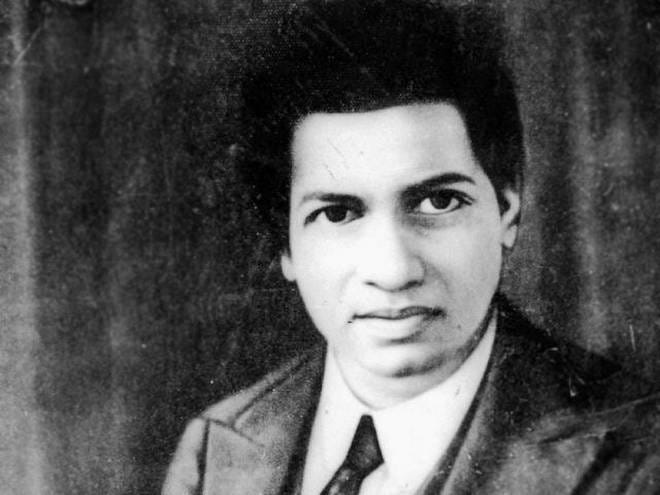



The Ramanujan Summation 1 2 3 1 12 By Mark Dodds Cantor S Paradise
About Press Copyright Contact us Creators Advertise Developers Terms Privacy Policy & Safety How works Test new features Press Copyright Contact us Creators Now, if we subtract the second equation from the first, the 1/2, 1/4, 1/8, etc all cancel, and we get S (1/2)S = 1 which means S/2 = 1 and so S = 2 This same technique can be used toDavneet Singh has done his BTech from Indian Institute of Technology, Kanpur He has been teaching from the past 12 years He provides courses for Maths, Science, Social Science,
Enter the n ie max values of series 5 Sum of the series 1^2 2^2 3^2 4^2 5^2 = 55 Other Related Programs in c Write a c program to find out the sum of given HPOne can write 1 1 2 1 3 ⋯ 1 n = γ ψ ( n 1) where γ is Euler's constant and ψ is the digamma function Of course, one reason for creating the digamma function is to make formulae Sum = 1 ½ ⅓ ¼ ⅕ ⅙ 1/7 = Solution Approach To solve the problem, we will simply use the loops as there is no specif formula for the sum of HP Algorithm
Let's say we have a series 1^23^25^2n^2 The formula for calculating the sum of this series is (1/1) (1/3) (1/5) (1/7) (1/n) We have found the formula for this seriesThen x = c 1 /3 c 2 /3 2 c 3 /3 3 For numbers greater than 1, there would be digits to the left of the point for the positive powers of a Note that some numbers may have two expansions Problem Write A C Program To Find Sum Of Series 11/2^21/3^31/n^n Logic This Below Solve this series in second ,use this statement and use it you also can modify




C Program To Sum The Series 1 1 2 1 3 1 N Computer Notes



How To Solve 1 2 1 6 1 12 1 1 30 1 42 1 56 1 72 1 90 1 110 1 132 Quora
where the formula giving the sum of the geometric progression with ratio 1/2 1 / 2 has been used ∎ In conclusion, we can say that the sequence ( 1) is convergent and its limitWe need to give this a name so let f (n) = 1/ (1x2)1/ (2x3)1/ (3x4)1/ (n (n1)) The first thing we notice is that for n > 1, we are just adding another fraction to the previous value of f (n) So We have listed following Methods to Find The Sum of Sequence in C Programming Addition of Series without Function;
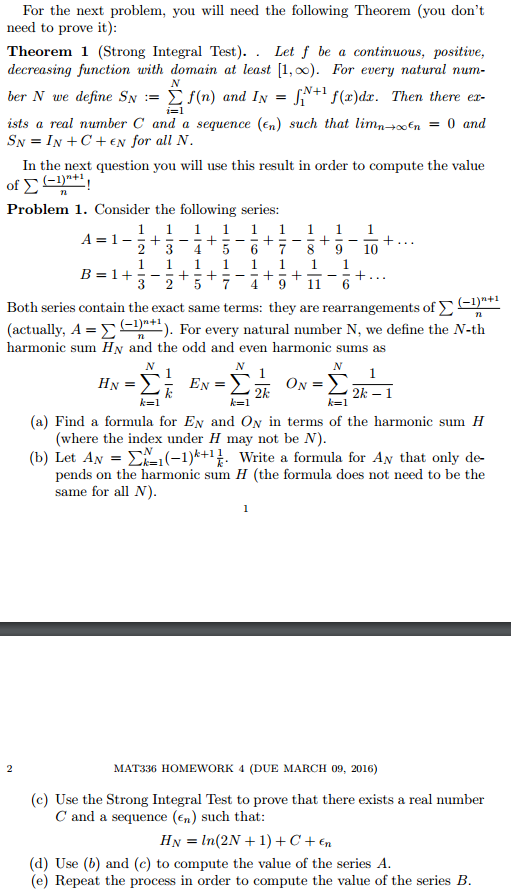



Solved For The Next Problem You Will Need The Following Chegg Com




Find A Quadratic Polynomial Each With The Given Numbers As The Sum And Product Of Its Zeroes Respectively I 14 1 Ii 2 13 Iii 0 5 Iv 1 1 V 14 14 Vi 4 1
Printf("Enter the n ie max values of series ");Write a c program or code to find out the sum of series 1^3 2^3 n^3 that is sum of cube of n natural numbersA Simple Solution is to initialize the sum as 0, then run a loop and call the factorial




Convergent Divergent Geometric Series With Manipulation Video Khan Academy




How To Sum The Integers From 1 To N 8 Steps With Pictures
Sum of the reciprocals of the squares sum_(r=1)^n \ 1/r^2 = pi^2/6 sum_(r=1)^n \ (beta(k,n1))/k Where beta(x,y) is the Beta Function Calculus Science Anatomy & PhysiologyHttp//technotipcom/7503/cprogramtofindsumofseriesnn/Lets write a C program to add first seven terms of the following series 1 / 1!}\ \ }{ 1009\cdot 1345 } \\ \\ &=\frac {\ \ \frac { 17\cdot
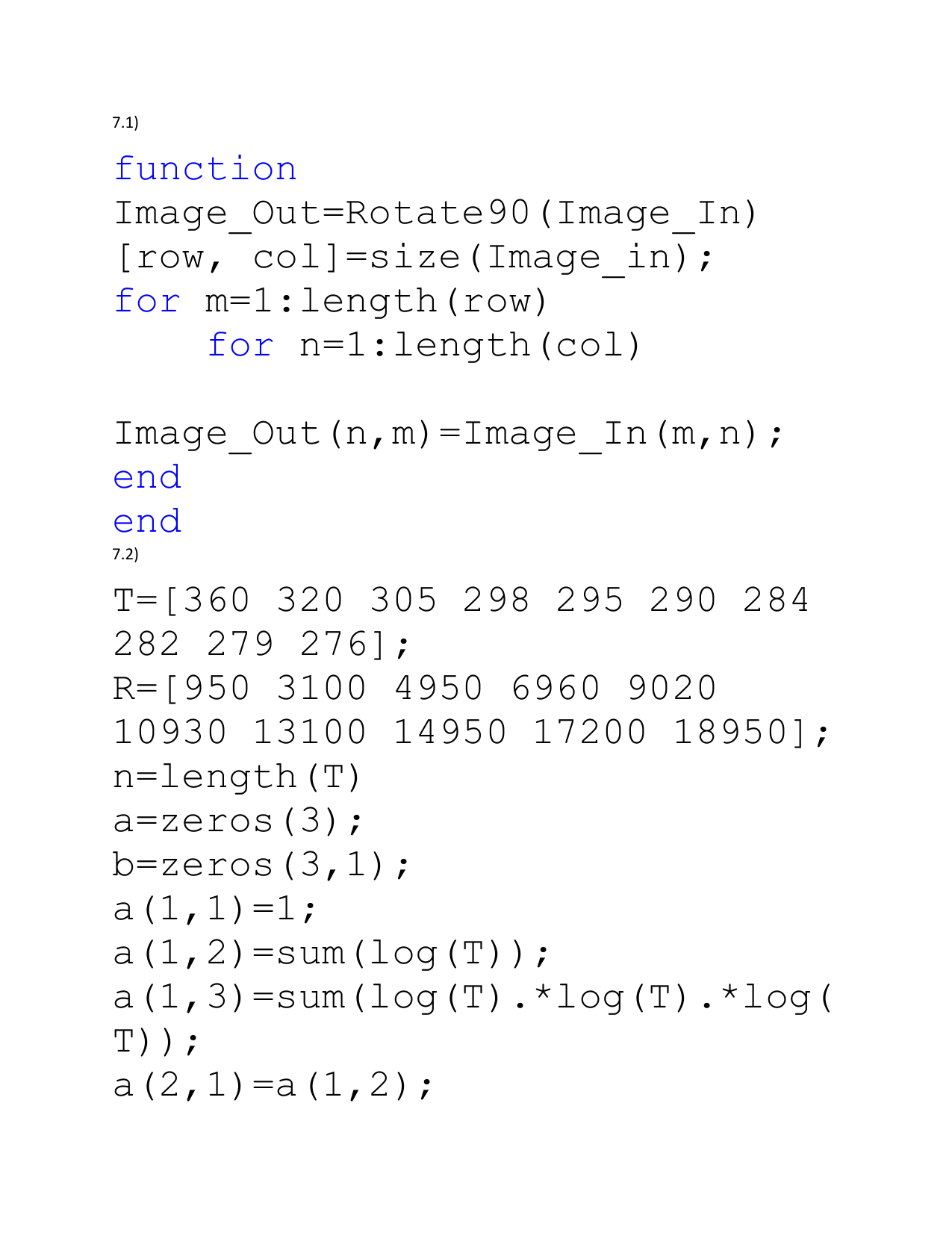



Simulations Modeling




Pi Formulas From Wolfram Mathworld
We've also written the C sum (1 2 3 N) = ( (1 N) * N) /2 Then there is a relationship between the max number and the value above, that is from 1 the difference step 1/3 everytime the max numberSum of n numbers in C This program adds n numbers that a user inputs The user enters a number indicating how many numbers to add and the n numbers We can do it by using an array and
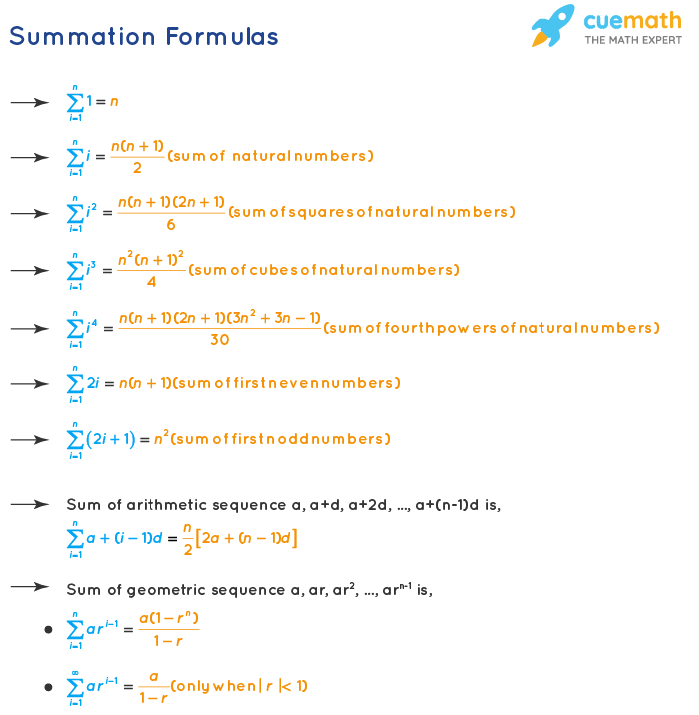



Summation Formulas What Are Summation Formulas Examples
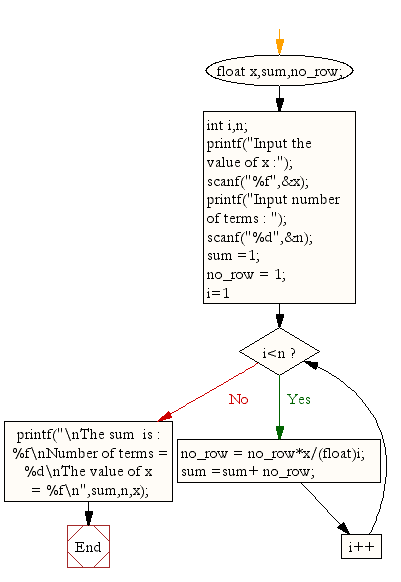



C Compute The Sum Of The Series 1 X X 2 2 X 3 3
C Program to findHere's simple C program to find sum of series 11/21/31/41/51/N in C Programming Language Numbers in C Normally, when we work with Numbers, we use primitive data typesGeneralizing this argument, any infinite sum of values of a monotone decreasing positive function of (like the harmonic series) has partial sums that are within a bounded distance of the values of the




Sum Of N N Or N Brilliant Math Science Wiki
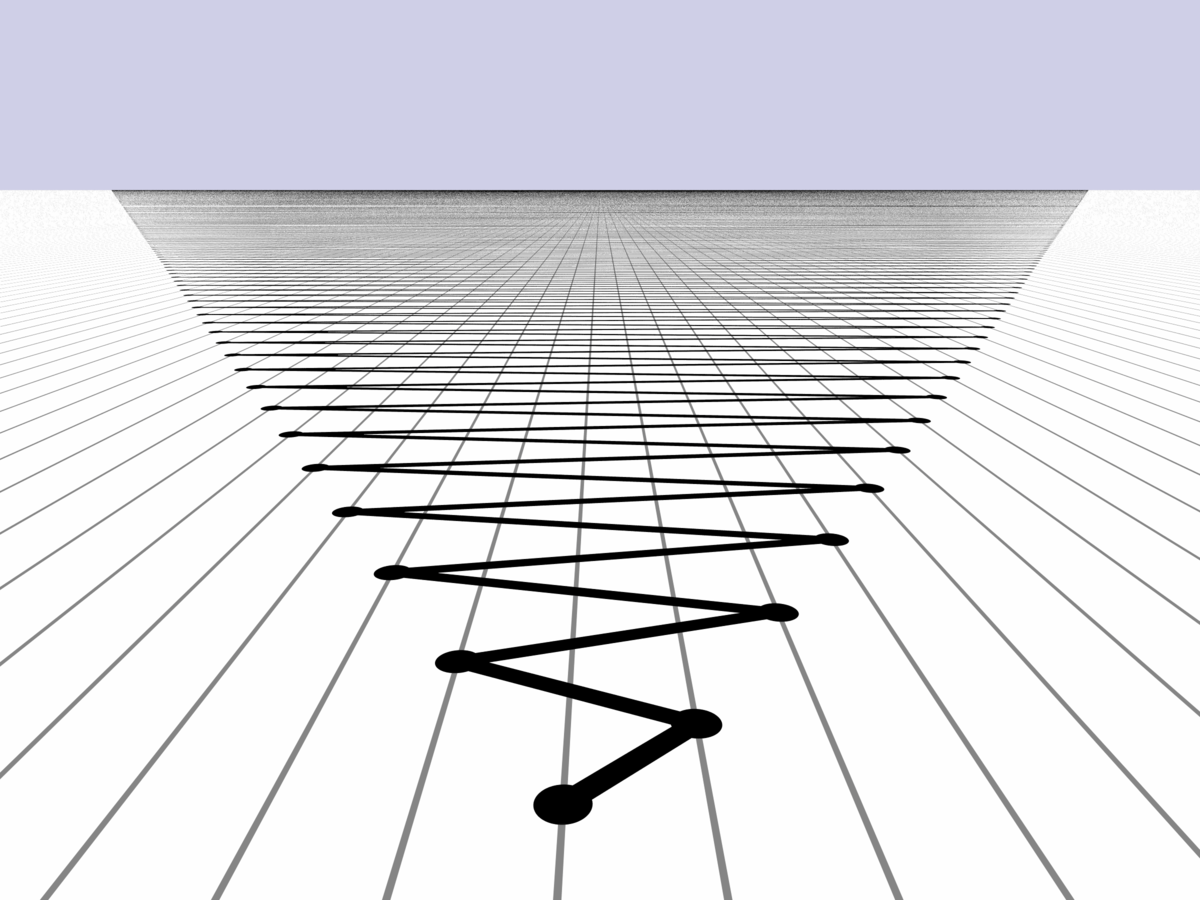



1 2 3 4 Wikipedia
Your sum is equal to n*(n 1)*(2*n 1) / 12 n*(n 1) / 4 This is obtained by writing it as a sum and using the fact that the sum of the first n consecutive squares is n(n 1)(2n 1) /Flow Control Ifelse Statement in C Programs on ifelse Switch Case in C Switch case Programs Conditional Operator While loop in C Dowhile loop in C While vs dowhile For loop in C BreakSum of Natural Numbers Using while Loop #include int main() { int n, i, sum = 0;



How Can We Write The Program In C Language For The Series 1 1 2 3 4 5 N Terms Quora




Solved Problem C 1 The Well Known Formula For Calculating Chegg Com
Answer (1 of 27) You can use Euler's theorem to avoid some exponentiation, as phi(0000)= Euler's theorem says that a^phi(b)=1 mod b if (a,b)=1 Then you canAnswer (1 of 7) You are looking for the n'th partial sum of the harmonic series, also called the n'th harmonic number H_n, which has a very nice approximation \displaystyle H_n = \sum_{k=1}^n Given a positive integer n, write a function to compute the sum of the series 1/1!




Ml Aggarwal Solutions For Class 10 Maths Chapter 9 Arithmetic And Geometric Progression Download Free Pdf



Q Tbn And9gct8tkkzwwpl9hbzpxfuevwpx0kqn0tfqtz5rklmdywb8etpw6vicjrn Usqp Cau
Lets write a C program to add first seven terms of the following series 1 / 1!If the given number is equal to Zero then Sum of N Natural numbers = 0; I am looking for a formula to which I can supply a number N and have it calculate 1234N I realise that I can enter 1 to N in as many cells then use SUM but this won't do




C Program To Find The Sum Of Series 1 4 2 4 3 4 N 4 Stack Overflow
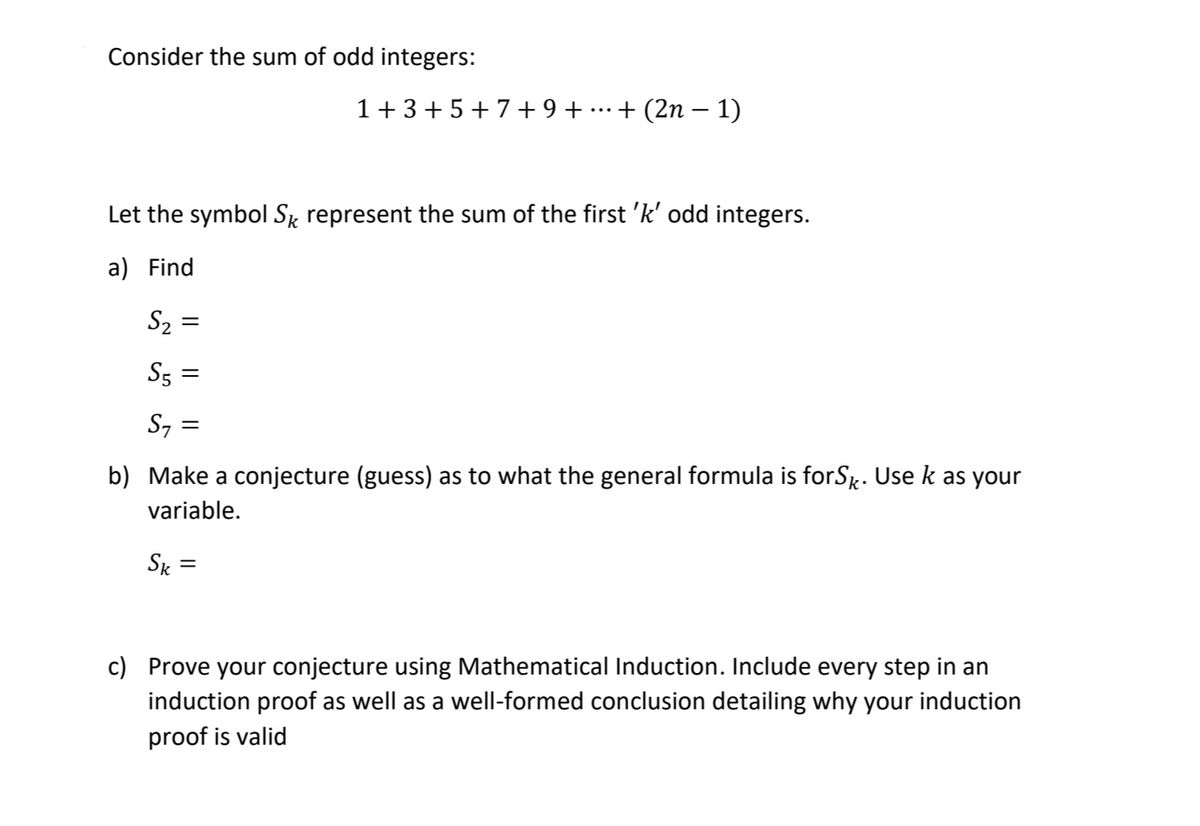



Answered Consider The Sum Of Odd Integers 1 3 Bartleby
/* C program to find Sum of series S=1 (12) (123) (123n) */ Enter value for n = 10 The Sum of Series up to Value 10 = 2 Process returned 04 thoughts on "C program to find sum of series 11/2^21/3^31/n^n" sky at 614 am 1, 4, 9, 16, 25, 36, 49, 64, 81, plz slove this question Reply Vinay Kumar\begin{aligned} \frac { \sum _{ i=1 }^{ 17 }{ { i }^{ 2 } } }{ 1009\cdot 1345 } &=\frac {\ \ \frac { 17(171)(2\cdot 171) }{ 3!




Sum Of Natural Numbers Using Recursion Geeksforgeeks



Q Tbn And9gcttewt5zzcmp8xja7ogmfwxjegmgmbz57sq9vdng8r465wclpepms7e Usqp Cau
In this C Program, we take a Limit as an Input from the user Suppose, if the user enters the Limit as 5, the program will calculate the Sum of Sequence starting from Numbers 1 toSum of Sequence with Function;Partial sum formula Partial sums More terms;
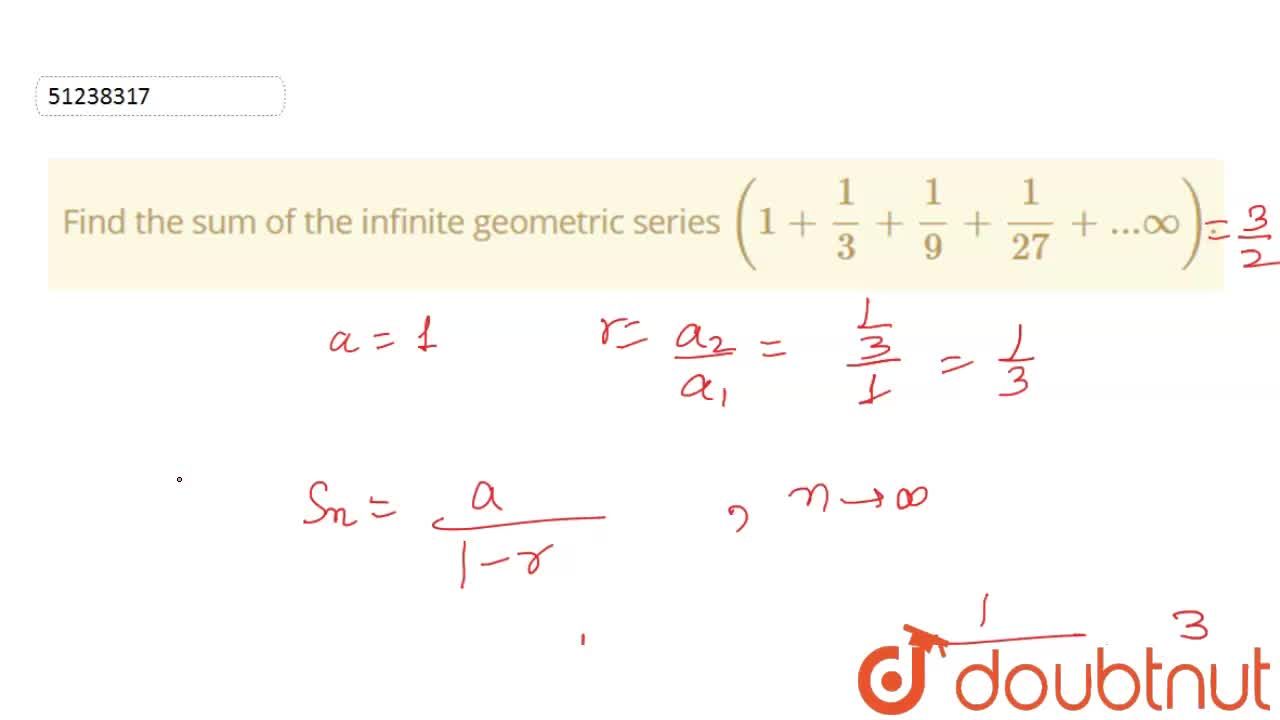



Find The Sum Of The Infinite Geometric Series 1 1 3 1 9 1 27 Oo




Worked Examples Summation Notation Video Khan Academy
Sum of the First n n Positive Integers Let S_n = 1234\cdots n = \displaystyle \sum_ {k=1}^n k S n = 12 34⋯ n = k=1∑n k The elementary trick for solving this equation (which GaussIn this C program, the user asked to enter any positive integer Then using that value, the compiler will find the sum of series 1 2 2 2 3 2 n 2 using the above formula Within the main()A popular programming and development blog Here you can learn C, C, Java, Python, Android Development, PHP, SQL, JavaScript, Net, etc




C Program To Calculate The Sum And Average Of N Number




Proof Writing Prove For All N N 1 2 3 2 5 2 2n 1 2 Frac 4n 3 N 3 Mathematics Stack Exchange
S_n=n^2 Let us find S_m, the sum of the first m terms of the series, as I do not want to mix it up with n in the series If desired we can later put m=n to find sum of the first n terms ofPrintf("Enter a positive integer ");(integrate 1/n^2 from n = 1 to xi) / (sum 1/n^2 from n = 1 to xi) Have a question about using




Prove By Induction Sum Of The First N Cubes 1 3 2 3 3 3 N 3 Youtube



What Is The Formula Of The Sequence 1 3 6 10 15 21 Quora
As Nth term of AP is given as ( a (n – 1)d) Hence, Nth term of harmonic progression is reciprocal of Nth term of AP, which is 1/ (a (n – 1)d) where "a" is the 1st term of AP and "d"In this C Program, we take Sample Output Find the sum of the series 1 1/2^2 1/3^3 1/n^n Input the value for nth term 5 1/1^1 = 1



How To Calculate 1 2 3 4 5 6 7 8 9 10 Quickly Quora




Number Sequences Lecture 7 Sep 27 Chapter 4 1 Of The Book And Chapter Of The Notes Overhang Ppt Download
write a program in cfor that will take a number "n" as input and print the output in that formate if n=3 print in 2 1,12=2 1,23=3 4/14/16, 309 PM Unknown saidOtherwise, we used the mathematical formula of Sum of Series 1 2 3 N = N * (N 1) / 2; Solution We know the sum of natural numbers up to n = (n (n1))/2 If we simplify this we get, n (n1) (2n4)/12 If we put the number of terms in the above equation then we'll get the




1 2 1 4 1 8 1 16 Wikipedia
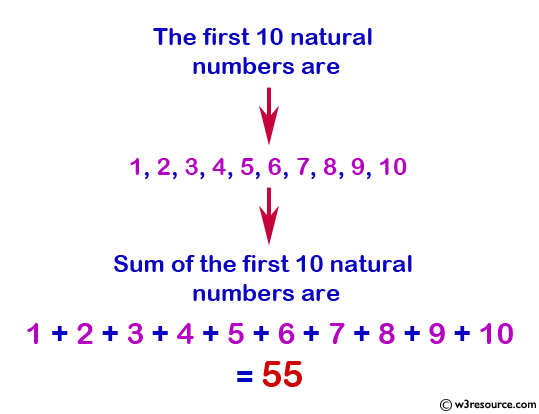



C Program Display The Sum Of First 10 Natural Numbers W3resource
C Program To Find Sum of Series 1/1!The sum of n terms of AP is the sum (addition) of first n terms of the arithmetic sequence It is equal to n divided by 2 times the sum of twice the first term – 'a' and the product of the




Solved Find Sum Of The Following Ap 1 1 N 1 2 N 1 3 N Upto Nth Terms Brainly In



Paradox 1 1 2 1 3 1 4 0 The Simpsons And Their Mathematical Secrets




Prove 1 2 3 N N N 1 2 Mathematical Induction
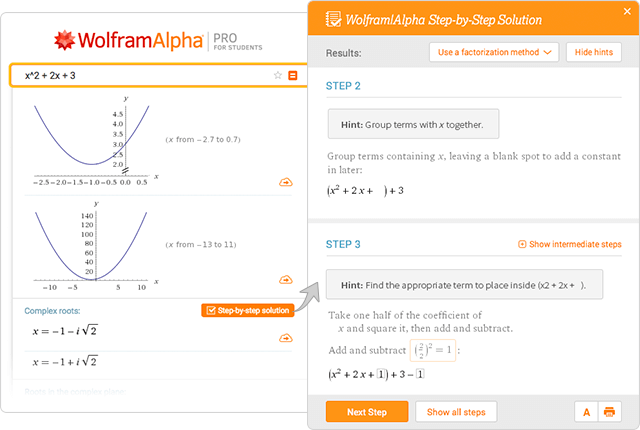



Wolfram Alpha Examples Step By Step Solutions




How To Sum The Integers From 1 To N 8 Steps With Pictures




Problem C 1 The Well Known Formula For Calculating Chegg Com



2
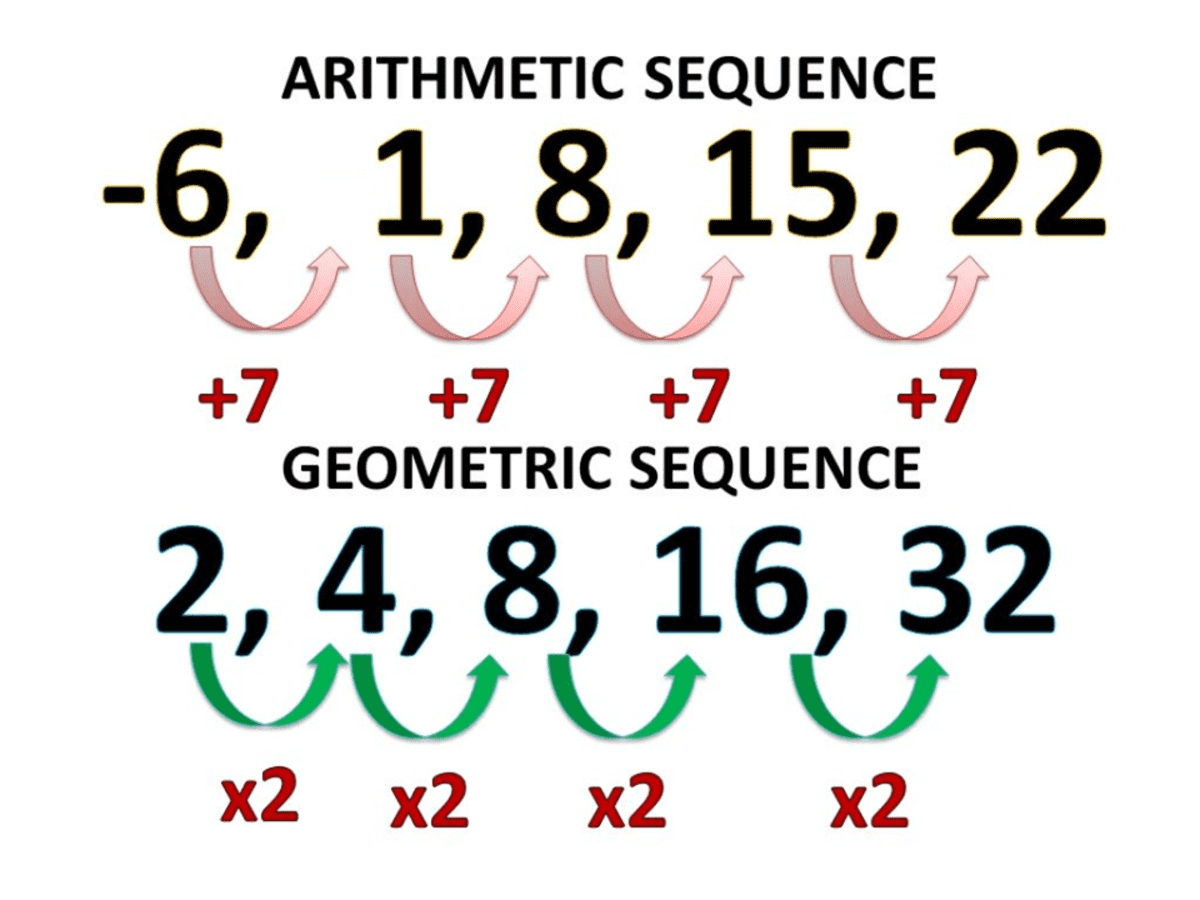



How To Find The General Term Of Sequences Owlcation




How To Find 1 2 1 4 1 8 Video Lesson Transcript Study Com




Find The Sum Of The Infinite Geometric Series 1 1 3 1 9 1 27 Oo




Find The Sum Of The Odd Numbers Between 0 And 50




Approximating Definite Integrals Using Right Riemann Sums Uniform Partitions Calculus Study Com



How To Calculate 1 2 3 4 5 6 7 8 9 10 Quickly Quora




How To Expand 1 X 3 In Series Quora
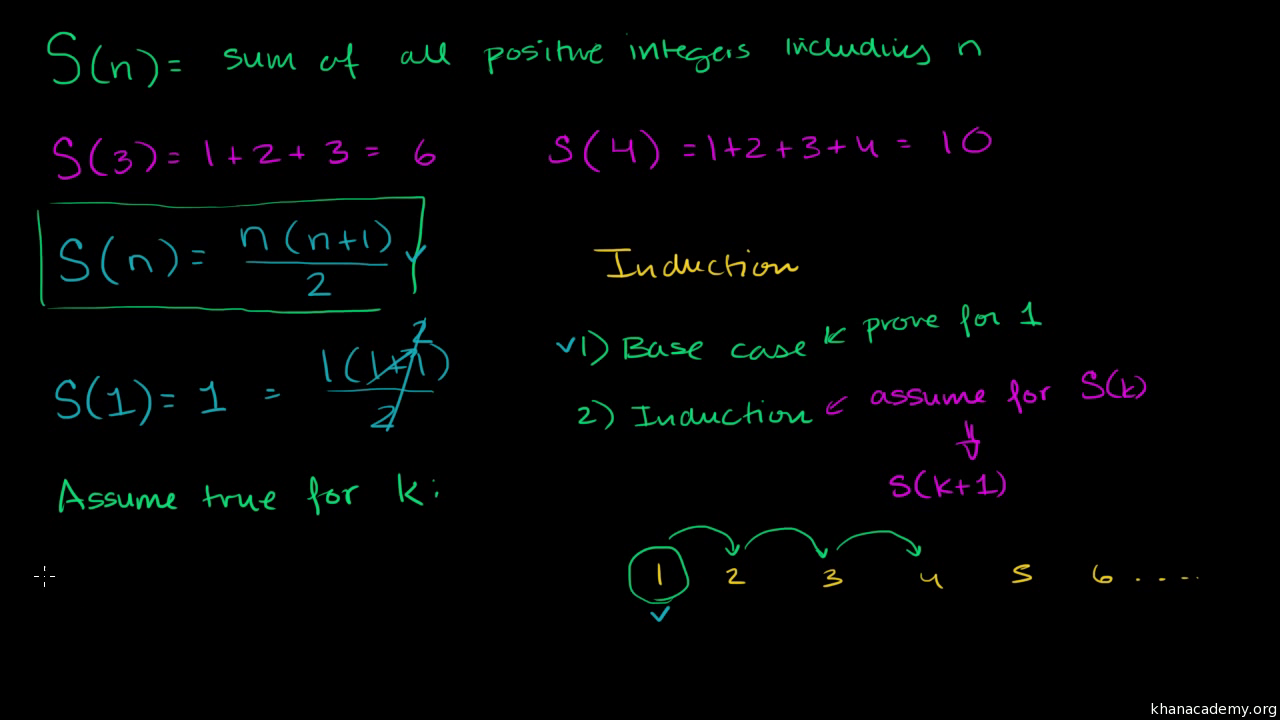



Proof Of Finite Arithmetic Series Formula By Induction Video Khan Academy




C Program To Compute Sum Of N Terms Of Series 1 1 2 1 3 1 4 Youtube
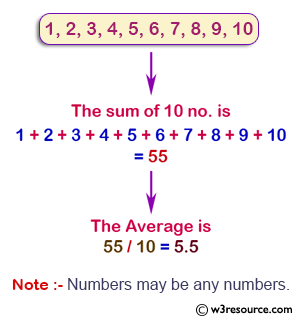



C Program Read 10 Numbers And Find Their Sum And Average W3resource
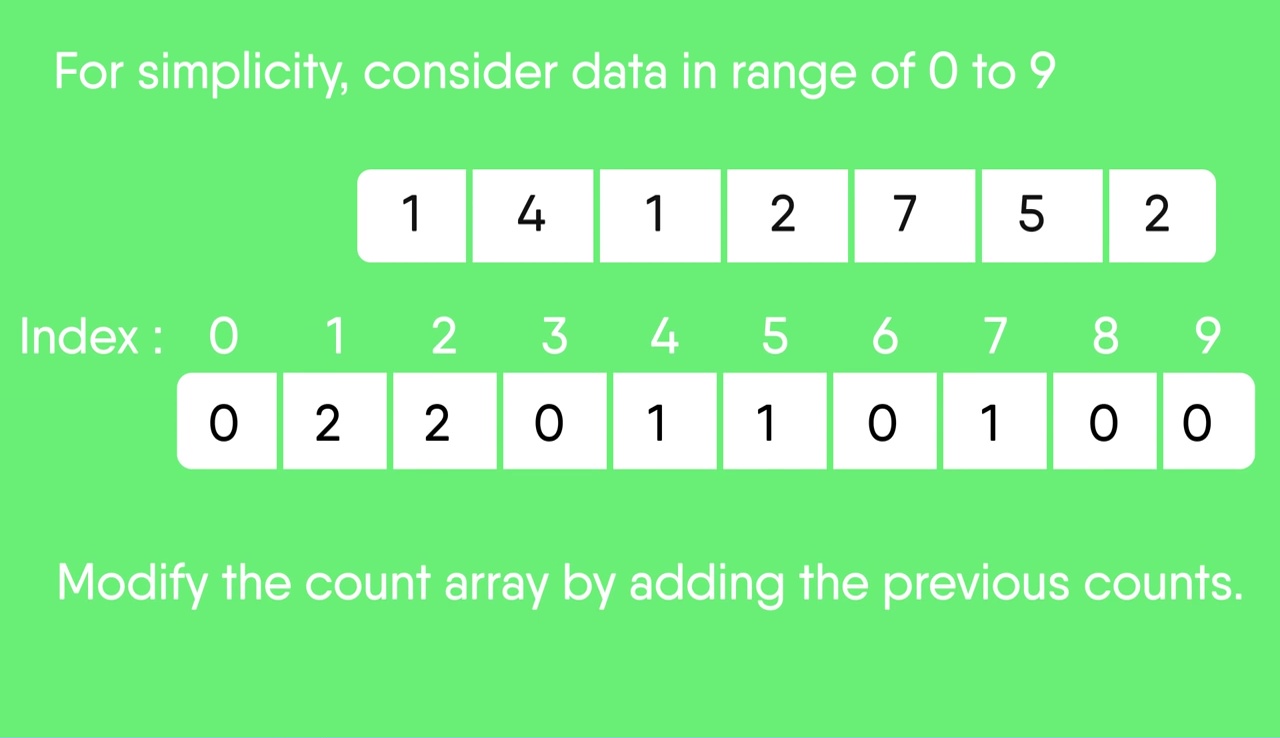



Counting Sort Geeksforgeeks




How To Find The General Term Of Sequences Owlcation
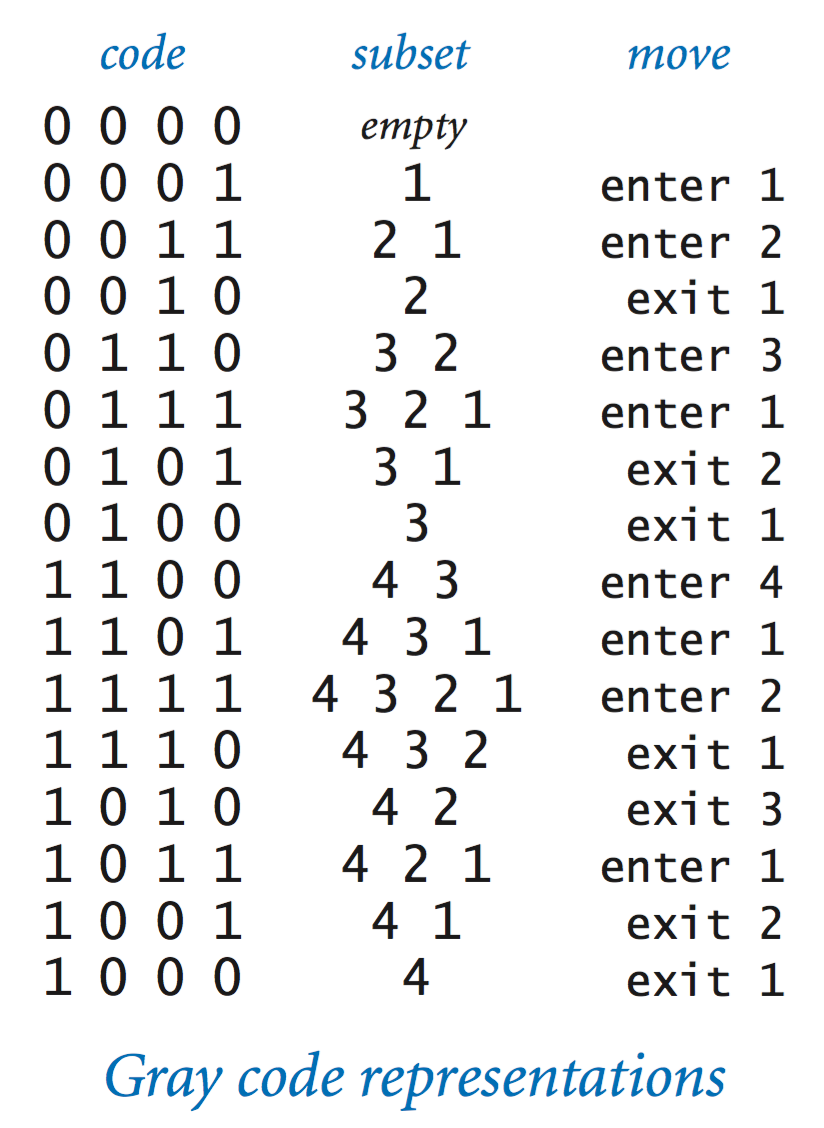



Recursion
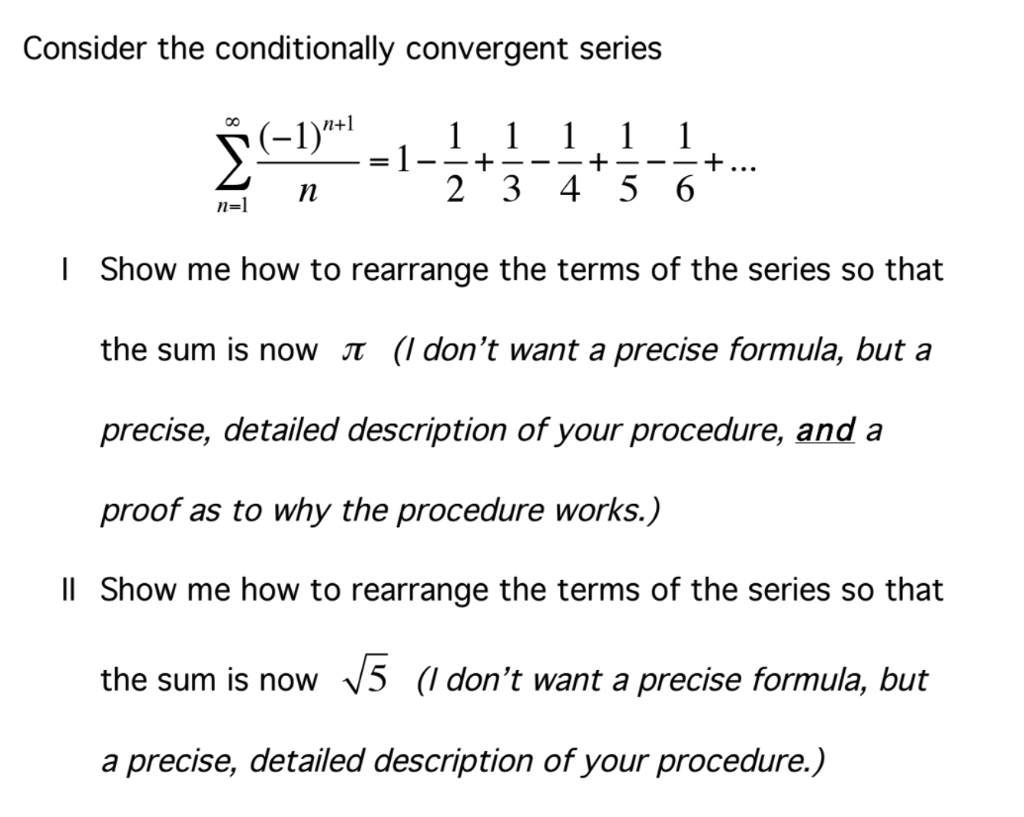



Consider The Conditionally Convergent Series Chegg Com
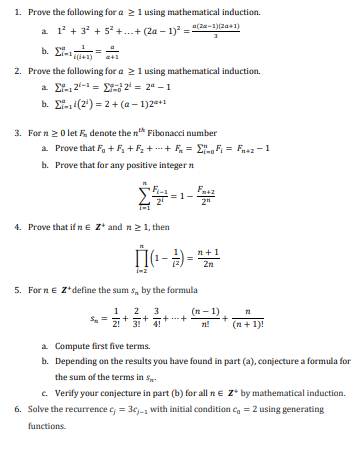



Solved 1 Prove The Following For 𝑎 1 Using Mathematical Chegg Com




All C Programs Program 180 Sum Of Series 1 1 2 2 3 3 4 4 1 N




Find The Sum Of The Infinite Geometric Series 1 1 3 1 9 1 27 Oo
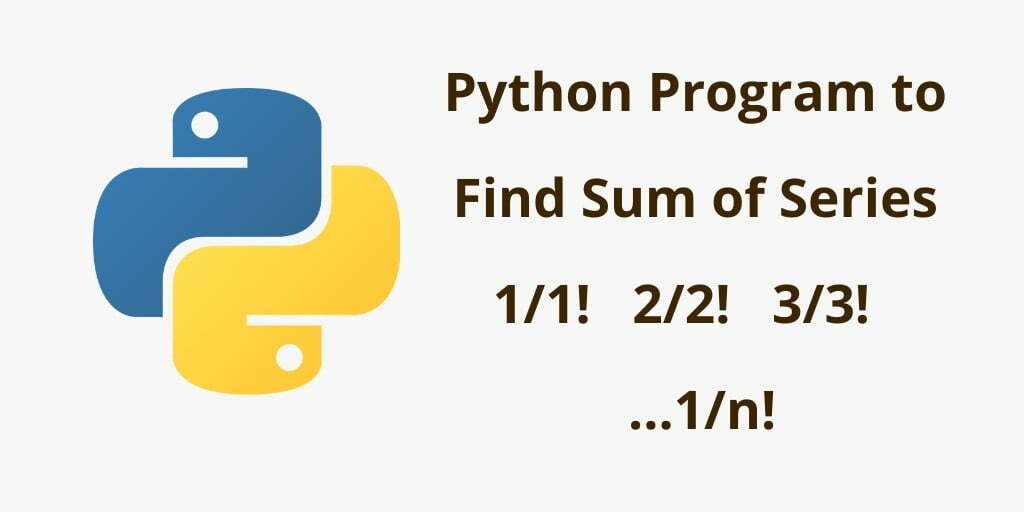



Python Program To Find Sum Of Series 1 1 2 2 3 3 1 N Tuts Make
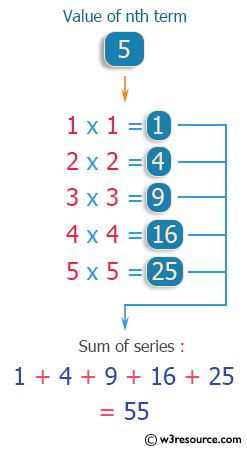



C Calculate The Sum Of The Series 1 1 2 2 N N
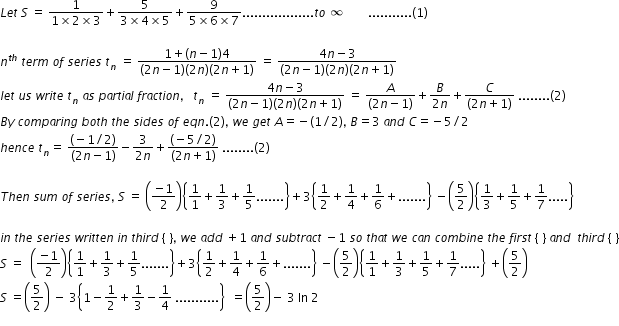



Cbse Class 11 Science Answered




C Program To Find Sum Of Series 1 1 2 2 3 3 N N Youtube



Solved Arithmetic Series Course Hero




The Ramanujan Summation 1 2 3 1 12 By Mark Dodds Cantor S Paradise
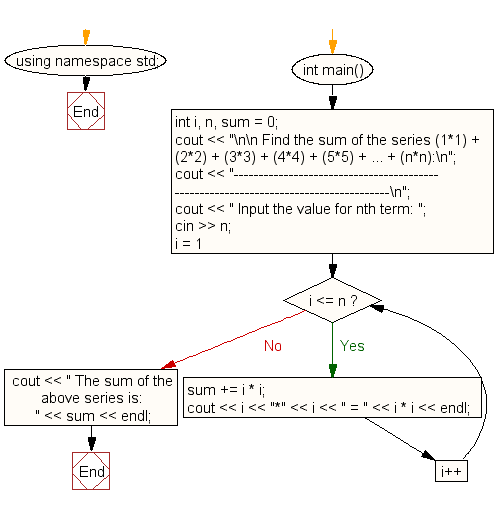



C Calculate The Sum Of The Series 1 1 2 2 N N




1 2 3 4 Wikipedia
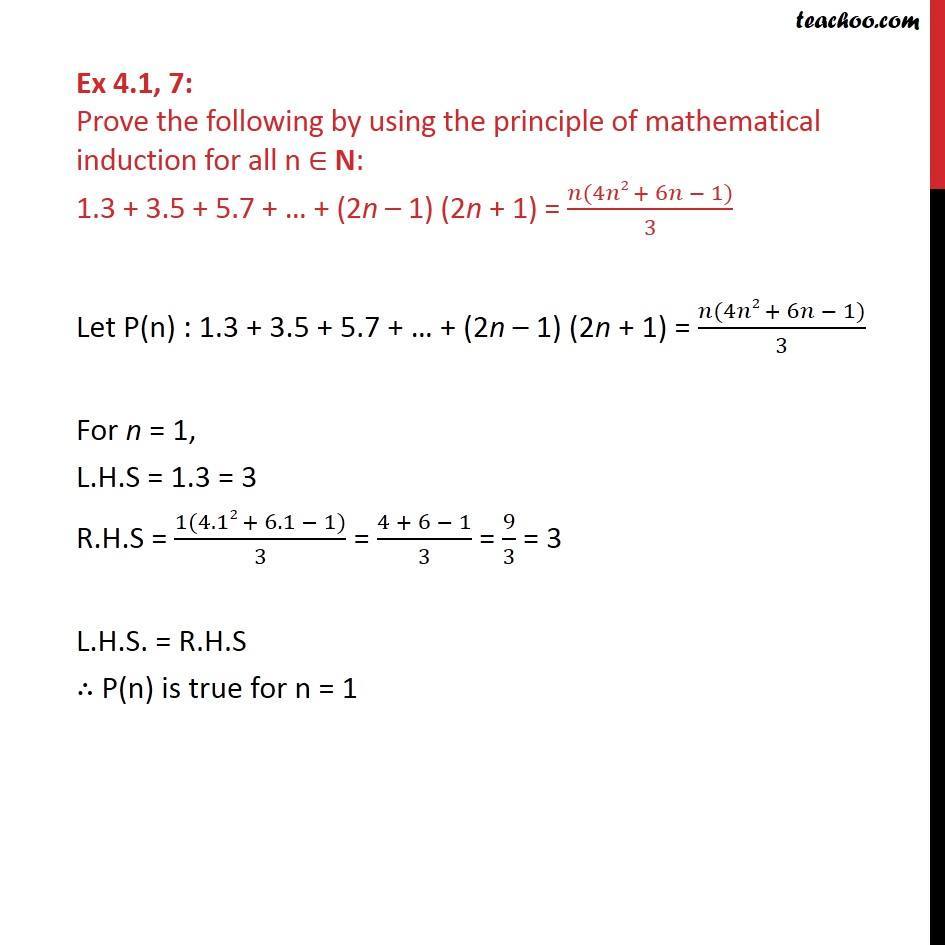



Ex 4 1 7 Prove 1 3 3 5 5 7 2n 1 2n 1 Class 11
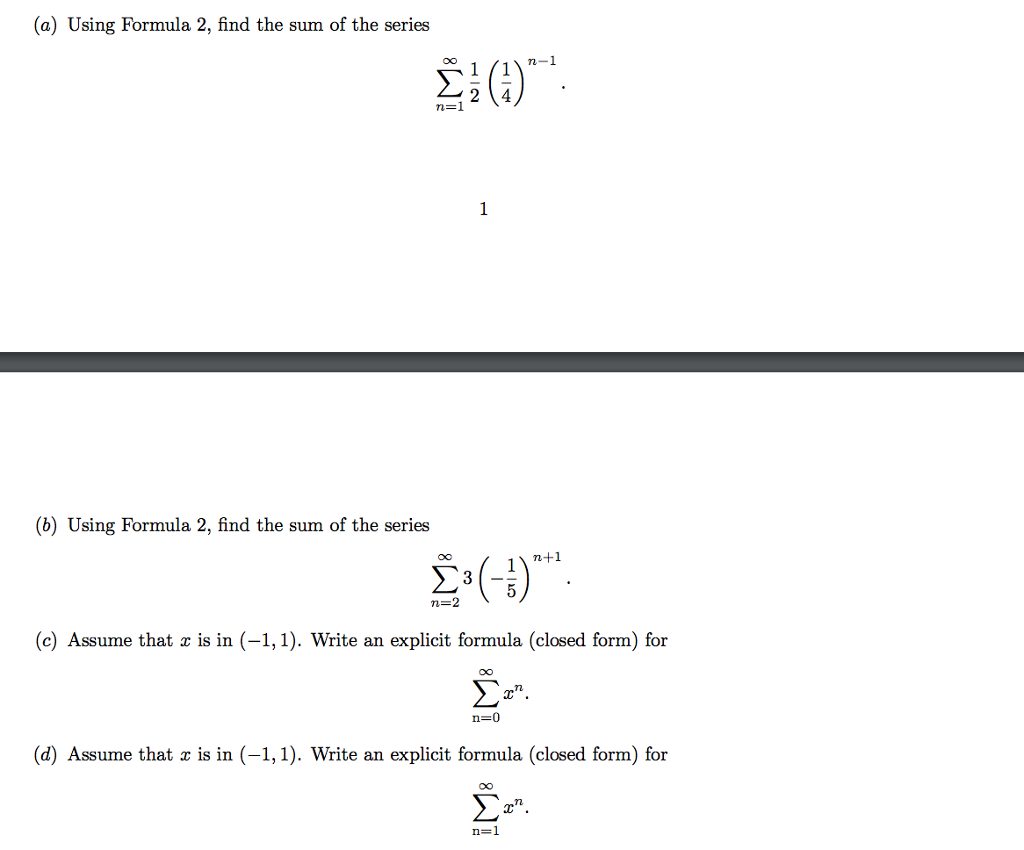



Solved A Using Formula 2 Find The Sum Of The Series Chegg Com




Solved 1 5 Write The First Four Elements Of The Chegg Com




How To Sum The Integers From 1 To N 8 Steps With Pictures
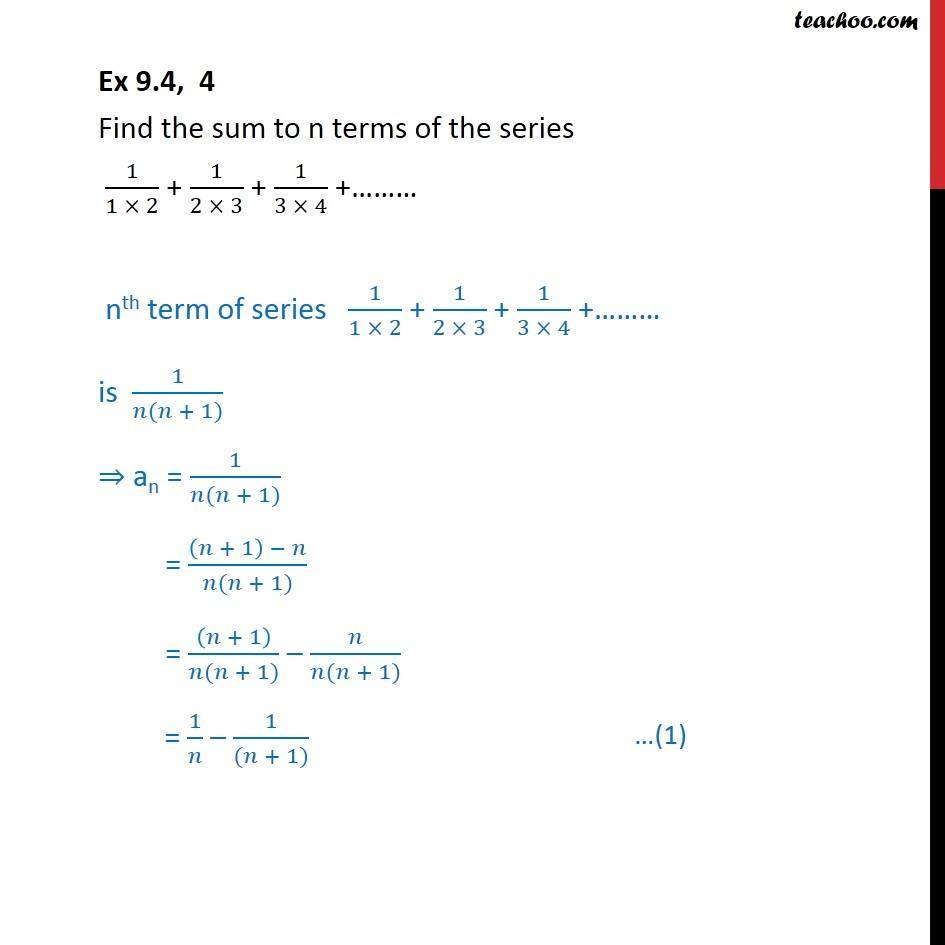



Ex 9 4 4 Find Sum Of Series 1 1 X 2 1 2 X 3 1 3 X 4




Jee Main 21 Maths Paper With Solutions Session Feb 24 Shift 1
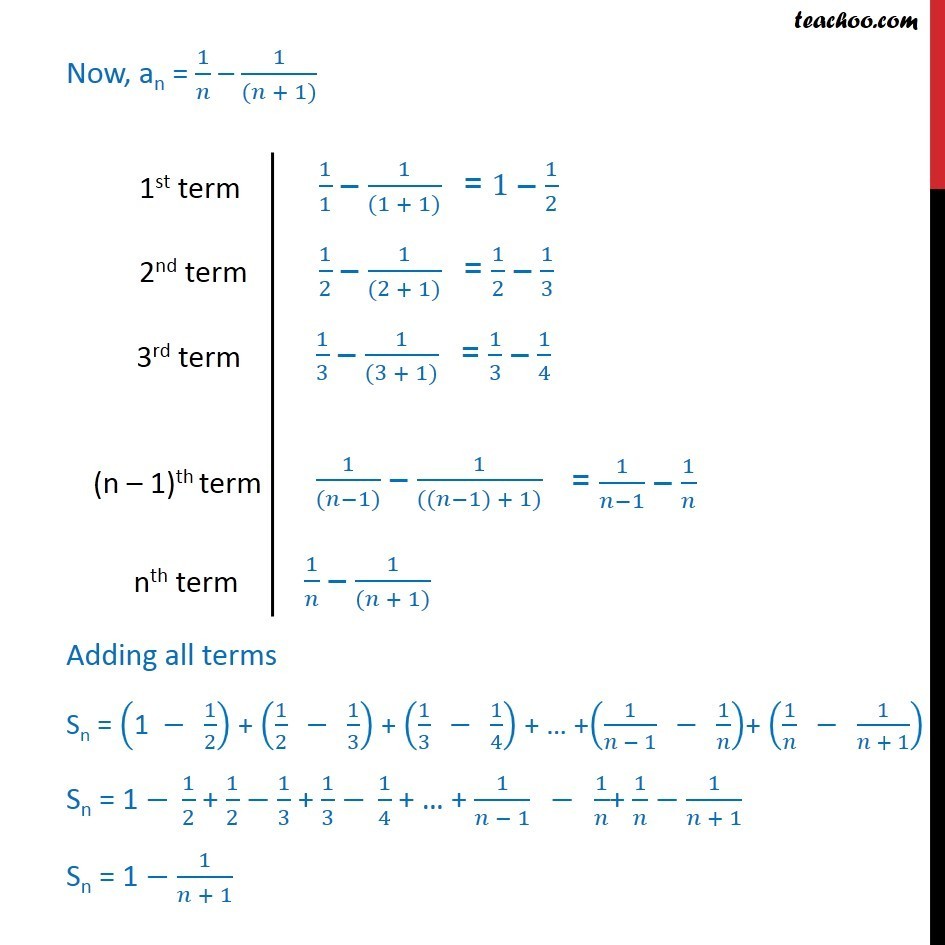



Ex 9 4 4 Find Sum Of Series 1 1 X 2 1 2 X 3 1 3 X 4



Q Tbn And9gcr2dzq9vruhucpfmhpoa3xxjj8wpyo Jyxs9znb7650ghjkonpxqfzp Usqp Cau




Sum Of N N Or N Brilliant Math Science Wiki




22 Proof Principle Of Mathematical Induction Mathgotserved 1 2 2 2 3 2 N 2 Nn 12n 1 6 Youtube
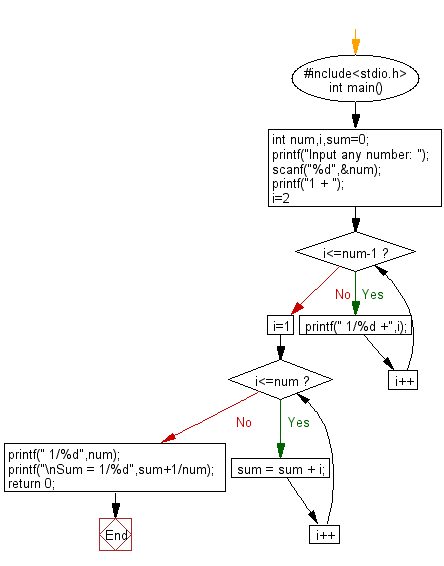



C Program Display Sum Of Series 1 1 2 1 3 1 N W3resource




C Program To Find Sum Of Each Row In A Matrix




Find Four Elements That Sum To A Given Value Set 2 Geeksforgeeks



How To Get The Sum Of 1 2 3 4 5 6 N In C Language Using A Function Quora
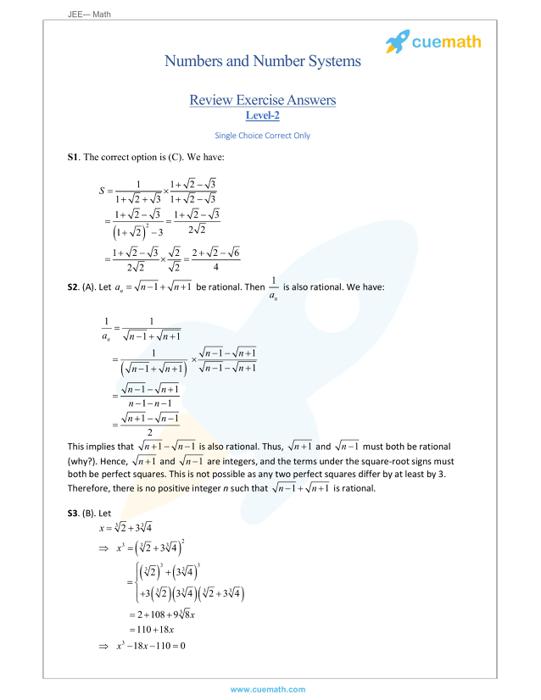



What Are Natural Numbers Definition Examples And Facts




Worked Examples Summation Notation Video Khan Academy




Infinite Series
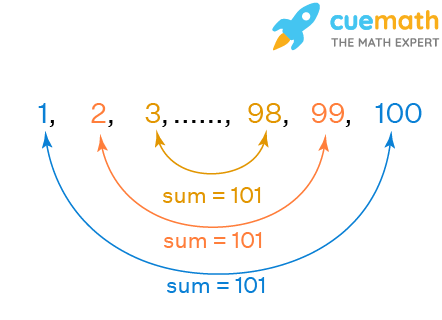



Sum Of N Terms Of An Ap Formula Examples Sum Of Ap Formula
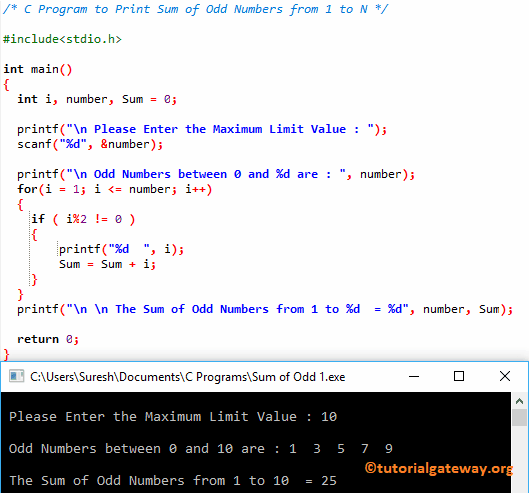



C Program To Print Sum Of Odd Numbers From 1 To N




Write A Program To Sum The Series 1 1 2 1 3 1 N Youtube




Ex 9 1 11 Write Five Terms Series A1 3 An 3an 1 2




C Program To Find Sum Of Series 1 1 2 2 3 3 N N
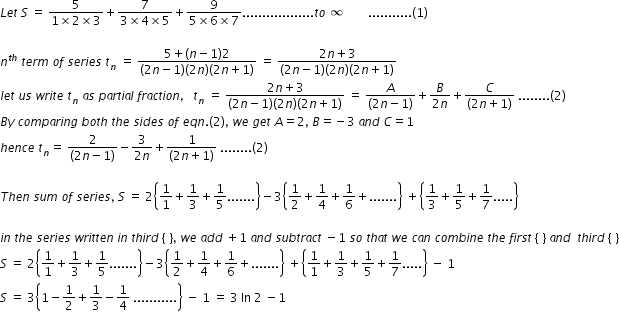



Cbse Class 11 Science Answered




How To Sum The Integers From 1 To N 8 Steps With Pictures



Q Tbn And9gcqxrs778eskqxr9temty9rp Xgzwzh3 cz Atzjli0 Ebfqxm4bir Usqp Cau
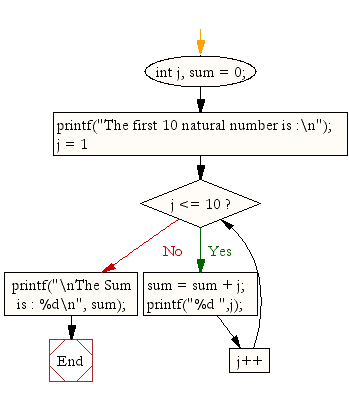



C Program Display The Sum Of First 10 Natural Numbers W3resource
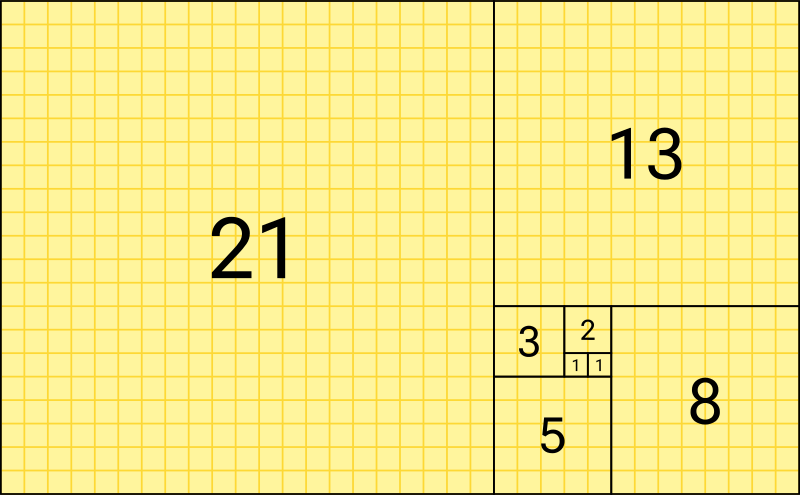



Fibonacci Number Wikipedia
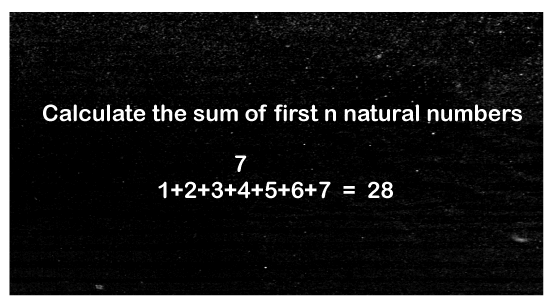



Sum Of First N Natural Numbers In C Javatpoint




Count Ways To Reach The Nth Stair Using Step 1 2 Or 3 Geeksforgeeks




Absolute And Conditional Convergence




Print All Subarrays With 0 Sum Geeksforgeeks



1 2 3 4 Wikipedia
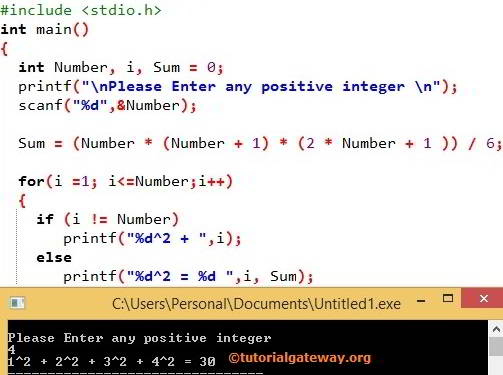



C Program To Find Sum Of Series 1 2 3 N




Print Given Harmonic Sequence Its Sum C
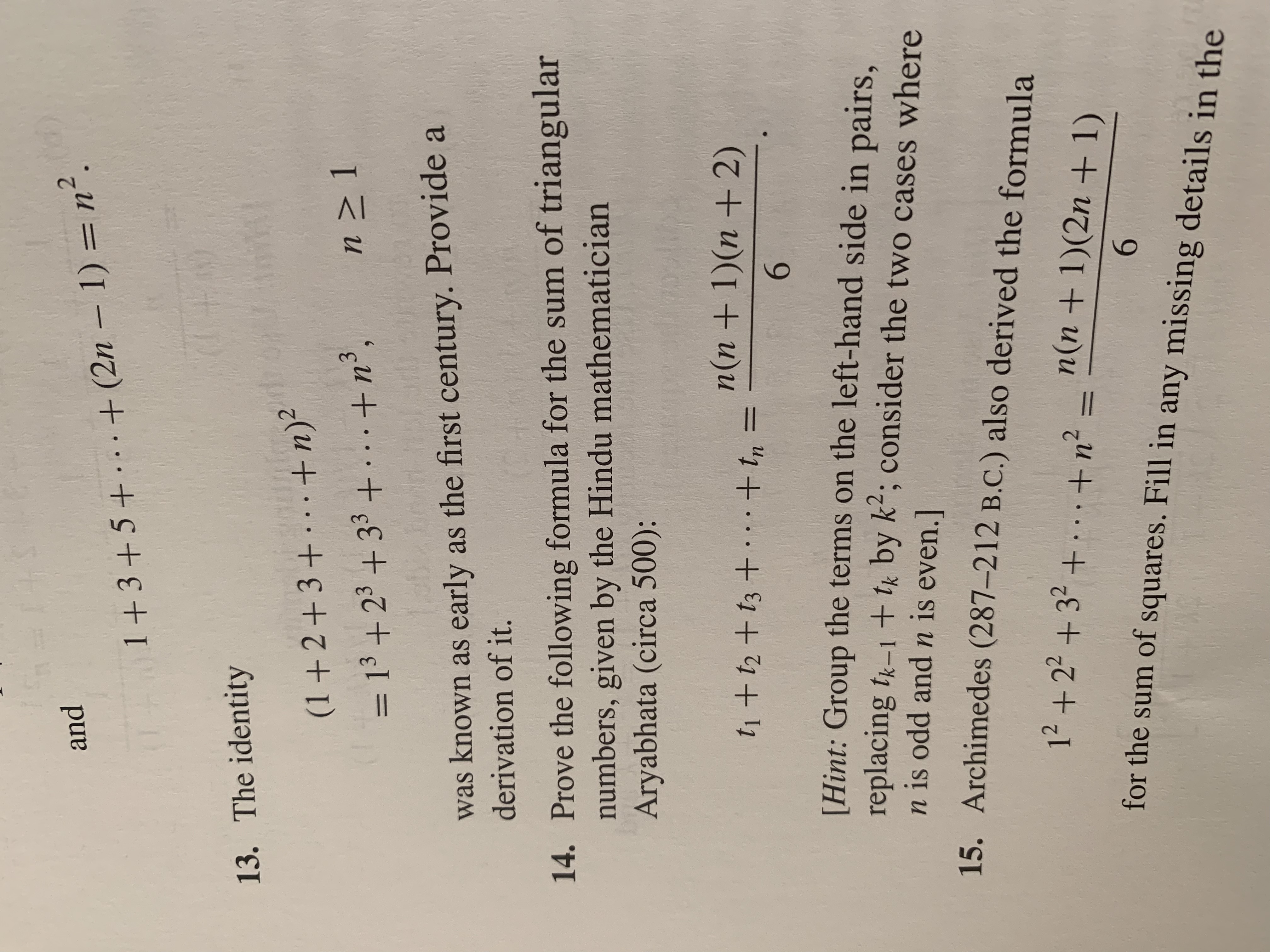



Answered And N 2n 1 N 1 3 5 13 The Bartleby
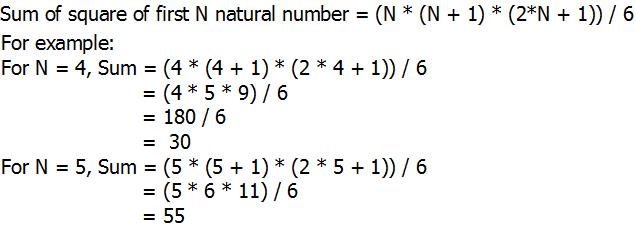



Python Program For Sum Of Squares Of First N Natural Numbers Geeksforgeeks
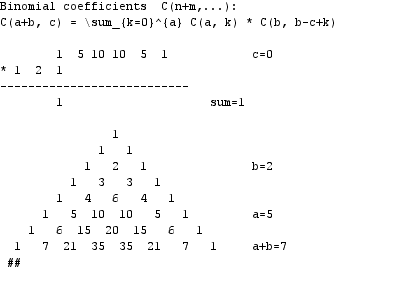



A Oeis
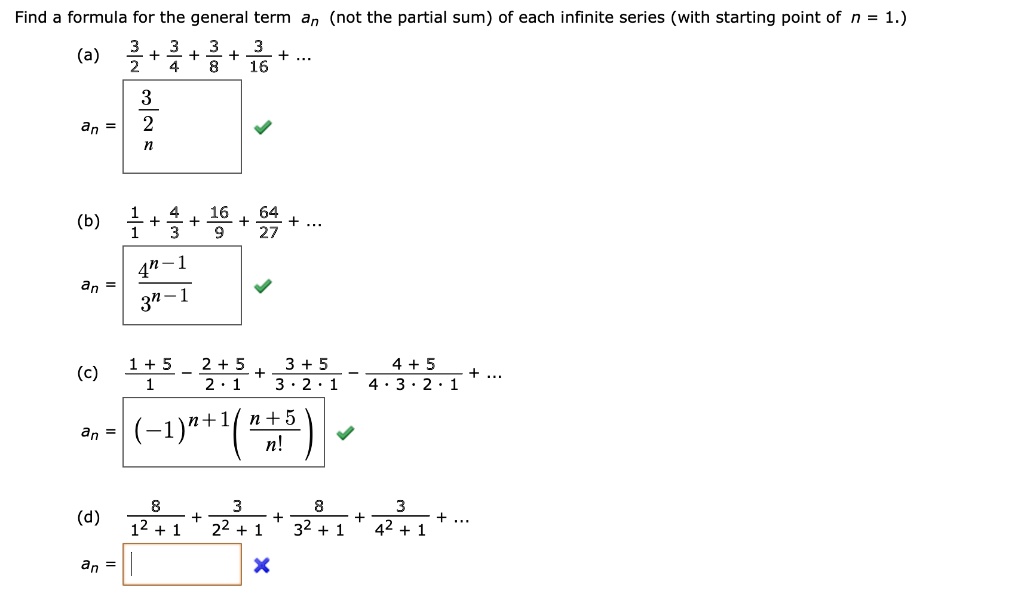



Solved Find Formula For The General Term An Not The Partial Sum Of Each Infinite Series With Starting Point Of N 1 A 2 4 8 3 16 2 64 27 B 1 3 4n 3n 1 5 2 5 2 1 3 5 3 2 1 4 5 4 3 2 1 1 10 N 5 N D 12 1 22 1 32 1
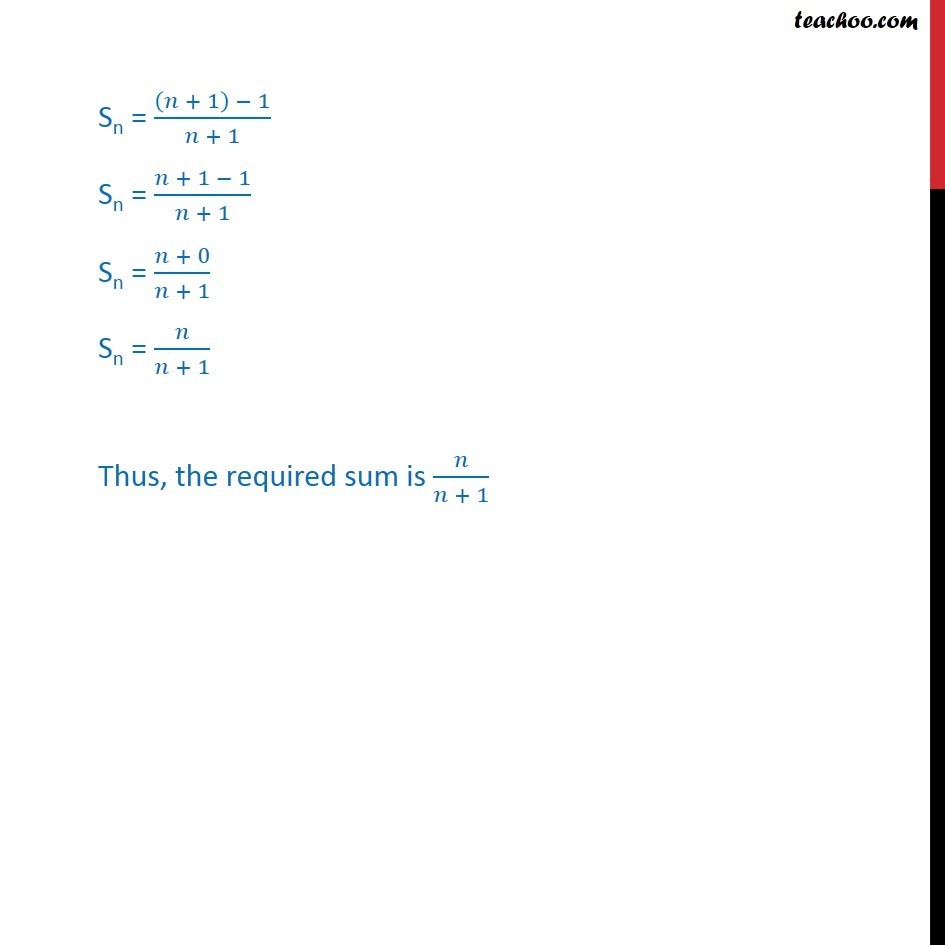



Ex 9 4 4 Find Sum Of Series 1 1 X 2 1 2 X 3 1 3 X 4
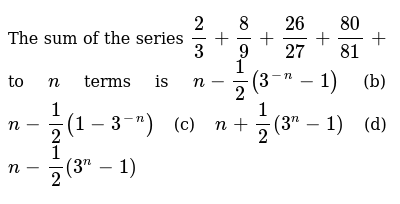



81 27 9 3 Find The Common Ratio Of The Given Sequence An



2
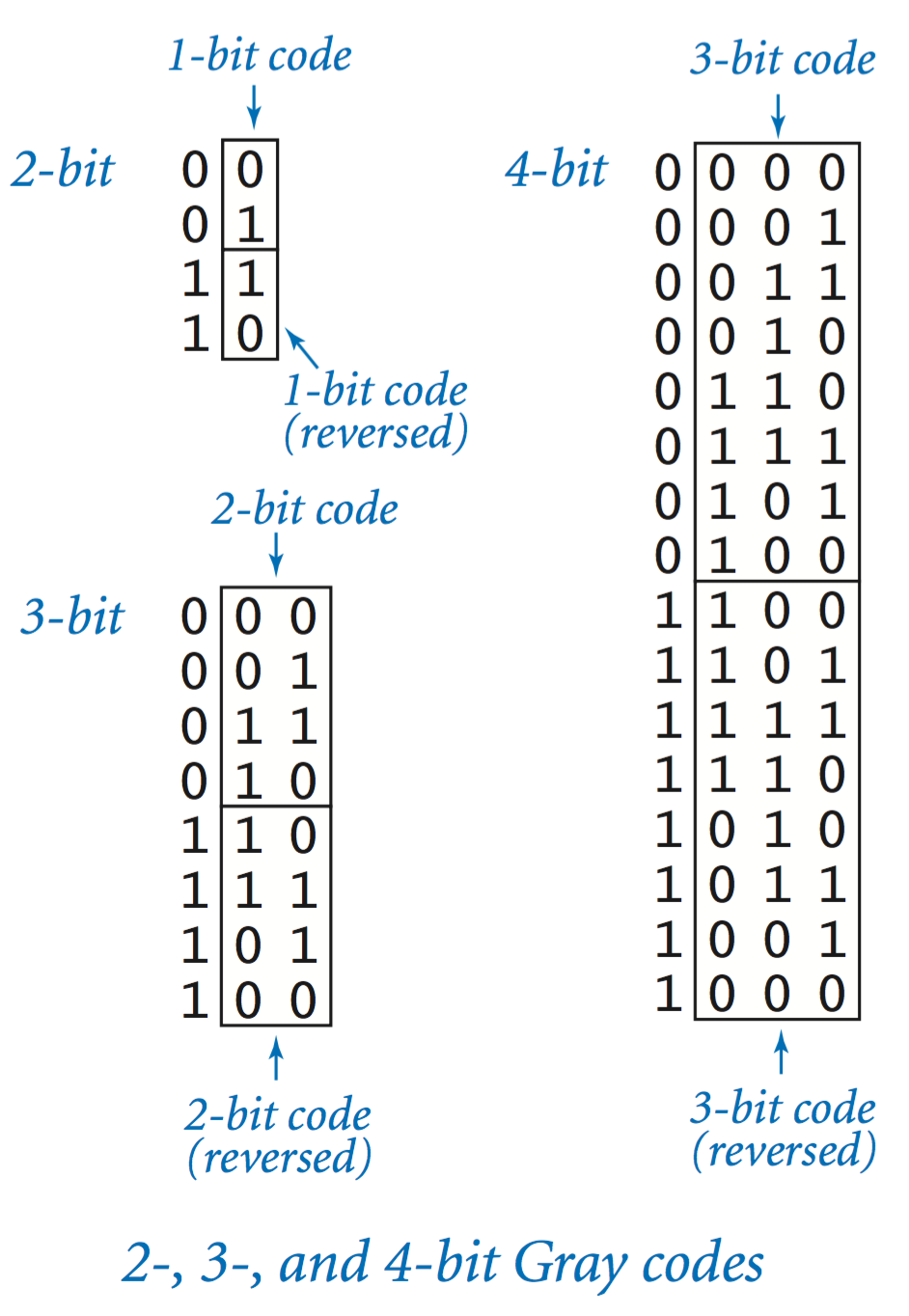



Recursion



0 件のコメント:
コメントを投稿